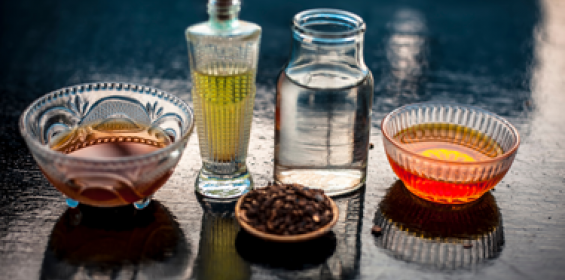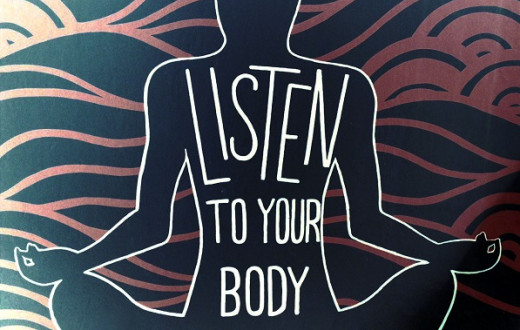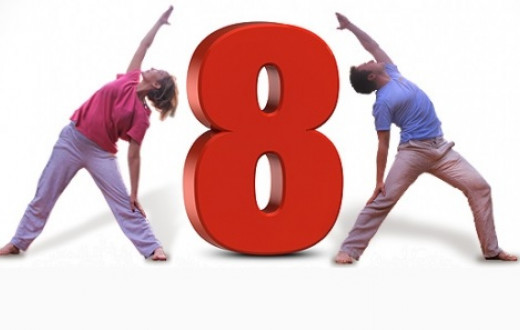Asthma is a lung condition that leads to inflammation of the airways. As breathing difficulties are one of the symptoms of Covid-19, little wonder that asthmatic patients are worried and cautious in this situation. Especially as the second wave of Covid-19 has seen an exponential rise in cases around the country. Without a doubt, those in the vulnerable category should take extra care now. But, what kind of care should asthmatic patients take to avoid contracting Covid-19? How far has research gone into understanding how Covid-19 affects asthmatic people? Does Ayurveda have some suggestions that can help? We will explore all this and more in this article.
Symptoms and guidelines of Covid-19
Covid-19 symptoms include fever, dry cough, a feeling of tiredness, and shortness of breath often accompanied by aches and pains, headaches, runny/stuffy nose, sore throat, and nausea. General prevention techniques include following hand hygiene, social distancing, avoiding travel, and venturing outside as it is believed to be airborne now.
Join a Free workshop on Yoga, Meditation and Breath
Most vulnerable categories in the pandemic
- Senior citizens (over 60 years of age)
- Young children (below 10 years of age)
- Those with comorbidities like
- heart diseases
- diabetes
- cancer
- blood pressure issues
- chronic lung diseases like COPD (chronic obstructive pulmonary disease) and asthma
Asthma explained by Ayurveda
According to Ayurveda, the whole universe is made up of five elements - earth, water, fire, air, and ether (space). We are also made up of these elements but certain elements have more of an impact than others, and this is because of our constitution (prakriti). This variance or imbalance is called dosha. There are three types of imbalances:
- Vata (domination of space and air elements)
- Pitta (domination of fire element)
- Kapha (domination of the earth and water elements)
For people with asthma, there is a predominant imbalance in Vata being obstructed in the cardio-pulmonary channels by Kapha. As both of these get aggravated, the asthmatic person faces the issue of a weak lung and its accompanying symptoms. This also affects the primary transmission of nutrition to the whole body, making things tougher for the person.

What triggers asthma?
Asthma gets triggered more with climatic changes such as cloudy days. Moreover, as Kapha naturally aggravates during late winters and spring, the condition could get difficult or may lead to troubling symptoms.
Asthma and coronavirus
It is not clear how susceptible people with asthma are to coronavirus. However, if an asthmatic person contracts the virus, things could get very difficult. As even in normal times, breathlessness is common for asthma patients, Covid-19 can make life very difficult for people with this condition.
Many patients, even athletes who were preparing for the Tokyo Olympics, after contracting and defeating coronavirus have said that the toll it took on their lungs was huge. In this situation, it becomes imperative for asthmatics to take extra precautions to avoid getting infected by the coronavirus.
Studies on asthmatic patients infected by the coronavirus
- A cohort study by a Boston-based healthcare system studied 562 asthma patients and 2,686 Covid-19 patients without asthma. It was found that 21% vs 18% of asthma to non-asthma patients were hospitalized, 3% vs 4% needed mechanical ventilation, and 1% vs 3% died. So, while hospitalization and mechanical ventilation were comparable for those with and without the condition, the mortality rate was lower among asthmatic patients.
- A November 2020 study, with an overall sample size of 5, 87 , 280 on the prevalence of asthma in Covid-19 patients, found that only 7.46% had asthma. It concluded that those with asthma had a lesser chance of contracting Covid-19 than those without.
- Another December 2020 study had concluded that “asthma is not associated with higher COVID-19 severity or worse prognosis, and patients with asthma are found to have a lower risk of death compared with patients without asthma.”
Clearly, the studies are positive for asthma patients. However, given the new strains and hourly-changing situation we are in, it would still be advisable for asthma patients to take all possible precautions, continue medications, keep inhalers handy, and stock up on any emergency medications prescribed by health care workers. Here are some precautions that those with asthma should follow.
Precautions for asthmatic patients

- Stay away from people who are infected with coronavirus or those who have come in contact with those infected
- Wash your hands regularly and properly (at least 20 to 30 seconds) before and after touching a foreign object
- Avoid touching your nose, eyes, and mouth
- Ensure you stay in a well-ventilated, airy room
- Avoid sharing utensils, makeup, and food with anyone
- Avoid smoke, dust, cold air, etc. as it can trigger an attack; cleaning agents and detergents can cause allergy, so avoid them
- Avoid food items that can aggravate phlegm
- Keep yourself well-hydrated, and eat and sleep on time
Vata imbalance is triggered by dehydration, stress, sleep deprivation, and starvation, and this can cause an asthmatic attack, making you more susceptible to coronavirus. So, ensure you take care of yourself to avoid these situations.
Ayurvedic suggestions for asthmatic patients for preventing Covid-19
- Herbs: Asthma is a chronic condition and this disease has to be managed for a long time. It can be done with herbs that improve cardiopulmonary function and also improve nutrition and metabolism. Some of the herbs that can help in treating asthma are Amruth, turmeric, Vasa, ginger, and Amla. You can take these raw - use some as spices in your food - or consume them in a tablet form.
- Yoga and pranayama: There are many breathing exercises and yoga asanas that improve our lung capacity, clear obstructions inside the chest, and help us breathe better. Doing these regularly can really improve your life even after getting affected by asthma. And, since coronavirus is a respiratory infection, a strong respiratory system and heightened immunity will be your guard against both illnesses. Here are some yoga asanas and pranayama that you can do to manage your asthma and also prevent coronavirus.
- Diet: If you don’t take care of your primary nutrition, it will impact both your immunity and stamina. Keep your diet warm and light by including steamed foods, alkaline soups, and digestive spices as these help in alleviating the symptoms as well.

Vaccination for asthmatic patients; It is suggested that those with asthma get vaccinated to prevent infection. So, book an appointment as soon as it is available where you are. Remember to continue wearing the mask even after you’ve been vaccinated.
People with asthma face a lot of challenges, but with a good lifestyle and the help of medications, most of them can live a normal life. The best thing you can do right now is to stay physically distant from people. Meanwhile, keep following the aforementioned tips as they will greatly aid you.
Doing meditation every day will bring more positivity and strength to your mind, helping you deal with these situations a lot better. To this effect, stay strong and stress-free with the power of meditation, breath, and yoga. Know more here.
Written with inputs from Dr. Sharika Menon, Ayurvaidya, Sri Sri Tattva
We’d love to hear from you
Leave your comments @artofliving






































